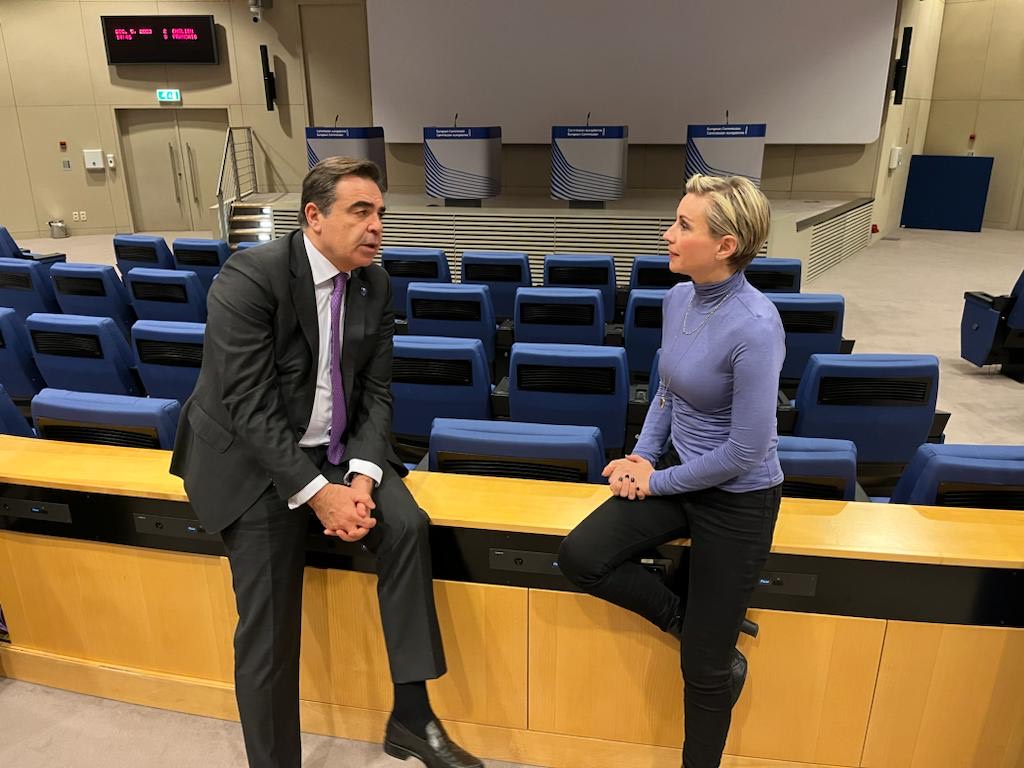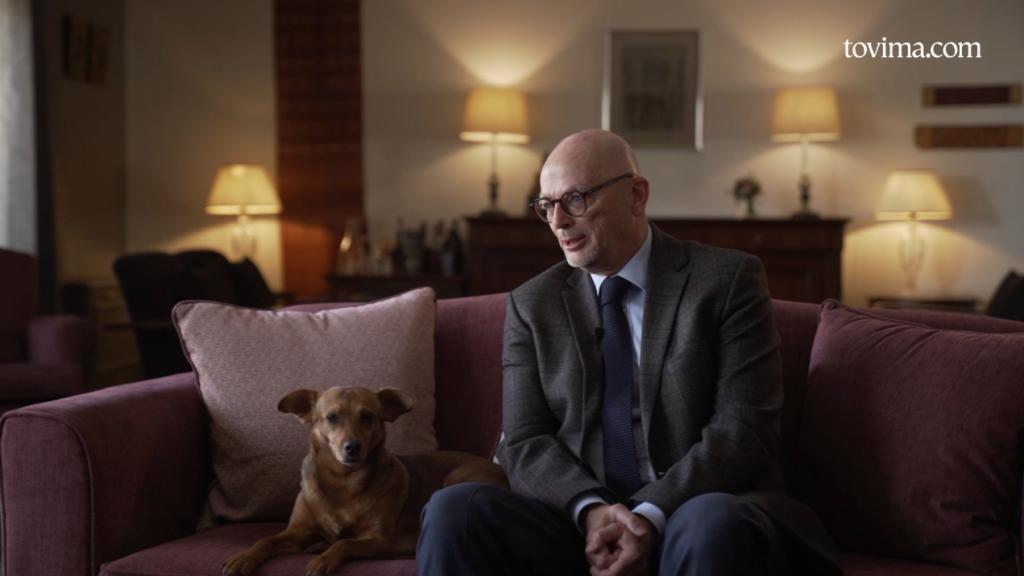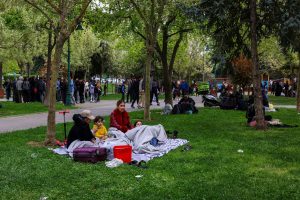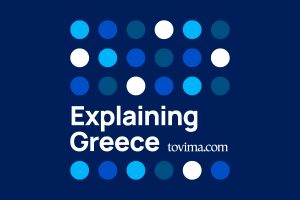A year before the end of the mandate, we met European Commission Vice President Margaritis Schinas at his second home, the press room, in front of the stage where in 2015 he had to fight diplomatically for his country when Greece was about to be kicked out of the Eurozone. He stresses to “To Vima” that the final deal on the Pact on Migration and Asylum is a matter of weeks explaining at the same time that the remaining issues between the Council and the Parliament “are few, not unimportant, but perfectly dοable”. I asked him on the next day after the end of this mandate. “My only concern and driver in life was to work as bridge between the European Union and Greece. And this will not change even after the 1st of December next year” said the first ever Greek Vice President of the European Commission.
The full interview for “To Vima”:
Q:We are in front of the stage at the press room of the European Commission. On this stage, which was the most difficult moment for you as a European Commission Vice President and as the European Commission chief spokesperson?
MARGARITIS SCHINAS-EUROPEAN COMMISSION VICE PRESIDENT
During my time as a spokesman more than a minute, there was a period of concern, I would say, a nightmarish period, which was the first semester of 2015. Because during these six months, on more than one occasion, I thought that I would be called as a Chief Spokesman to announce my country’s exit from the Eurozone. There can be no worse memory than that. But even in these dark times, I always had hope that the worst would be avoided and that the Commission would be central in avoiding this nightmare scenario. As it happened. But I still remember that at least on 2 or 3 occasions during this period, I came very close to this, to such a nightmarish option. Then as a Vice President, there were two moments of this kind, both during the first year of the mandate with few months difference. The first was, March 2020, when we were informed of the events unfolding in Evros and together with Prime Minister Mitsotakis we had to organize in a day the visit, the exceptional visit of the three leaders of the institutions at the border to make absolutely clear that Europe cannot be intimidated, cannot be harassed with these types of incidents. And it was also another moment where the worst fears of what might have happened were replaced by a big European moment. It was the first time in living memory that the three presidents of the institutions were present on the ground on such a crisis moment to symbolize the unity of the Union. Then a few months later, I believe it was in September 2020. A similar moment came when my team woke me up to tell me about the fire in Moria. The first news impressions estimates would be that there may be hundreds of people dead. And at that moment, I must confess that I lost hope. I said, this is the end of European migration policy. We will never be coming out of this. But then again, not only it was not the end, but it was the beginning of the European migration policy because two weeks later we presented the proposals for the new pact. And also as a result of Moria, we managed to build these new Europe standard reception centers in the Greek islands. 100% financed by EU money. So looking back, there is a common pattern in all these three incidents. Very bleak, dark, nightmarish options, but always leading to a positive outcome.
Q: You talked about the Pact on Migration and Asylum. However, it’s still a plan. We don’t have a final decision. Are you confident that we could have a final decision till the European elections? And besides, last week, the European Commission presented a plan to prevent smuggling. What does it mean for first entry countries such as Greece?
MARGARITIS SCHINAS-EUROPEAN COMMISSION VICE PRESIDENT
I think we are weeks, not months, away from the final agreement of the pact. This will be a big European moment and one of the legacy moments of the Von der Leyen Commission. To use, a metaphor for air transport. We are about to land and we took the wheels of the plane off. The remaining issues between the Council and the Parliament are not many. There are few not unimportant, but perfectly doable. And judging also from my contacts with the member states and the European Parliament, there is really no major political obstacle to prevent this from this deal. And I’m very confident that when Europeans go to vote next June, they will do so in the certainty for the first time after decades of failure that Europe has at last an EU regulatory framework for migration and asylum and EU system managed by the EU institutions, financed by EU resources and grounded in EU law.
As of smuggling, it is a business model, a criminal business model that we need to destroy. And this will be done, through different types of action at the EU level. The first is the regulatory action. The more we close the gaps of the regulatory environment in the EU, the less chances for the smugglers to go through our cracks. The second is to typify smuggling as a crime that entails penalties. There is a tendency for smugglers to get their way relatively light and the package we prepared for the first time, we suggest maximum penalties. We make these much higher price to pay for everyone involved in smuggling. And the third is that we need to involve countries of origin and transit the third countries and make them see that they have a lot to gain by fighting smuggling with us rather than tolerating this type of operations against us.
Q: A couple of days ago, President Von der Leyen has decided to attribute you with more responsibilities. It’s the third time during this mandate. What do you make of this expression of full solidarity to you?
MARGARITIS SCHINAS-EUROPEAN COMMISSION VICE PRESIDENT
Well, obviously, this validates a certain level of trust and confidence that the president has on me, for which I’m really grateful. It is universally known that I have dedicated over 30 years of my life in EU affairs. And probably this also plays a role because I get the sense very often from my work in the Commission that the President considers me as a safe pair of hands. And this is really, really nice. Now, of course, these are responsibilities that are added on top of my regular portfolio responsibilities. This entails a considerable amount of workload and pressure, but I’m very happy to count with a very efficient team of colleagues, officials both in my Cabinet and in the services of the Commission that allows me to deliver.
Q: We are six months away from the European elections and a year from the end of the mandate. What do you think about the delivery of this Commission? Can we talk about failures or wrong decisions? Could the Commission have done anything different?
“We can do more on strategic autonomy and resilience”
MARGARITIS SCHINAS-EUROPEAN COMMISSION VICE PRESIDENT
I prefer to refer to the positives of this Commission. As I was telling you before, in the 30 plus years of my work in the institutions I’ve never seen such a dense political time and such a watershed sequence of change as the four years that I have the honor to be a member of this college. We have smashed, demolished taboos of decades in this Commission. The vaccines, the creation of the recovery fund on the notion of a common borrowing, which was a non go area for the EU. The fact that we spend the EU taxpayers money to buy weapons for a third country, the way we organized crisis management at our external borders, modernization of migration. These are big moments that clearly show that there was a sense of history in this college and the moments that we as the College of Commissioners were called to take these decisions. Adding to that, the agreement on the Pact on Migration and Asylum, I think would create a very solid legacy for the underlined commission for the years to come. Now, obviously, the good is the enemy of the better. We can always think of areas where there is room for improvement in the future. I think that in the next political cycle there are two areas in particular where the Commission would be called to do more and better. The first is this broader issue of resilience and strategic autonomy, where in this Commission was identified the need for more resilience and the autonomy. In the next Commission, we will have to put our foot where our mouth is. This is the moment where we need to sort of give meaning to the term resilience in energy and industrial autonomy, microchip in all these raw materials. This is where the game of autonomy will be played. This is an area where more needs to be done. And the other area is the broader area of Europe in the world where clearly the world around us compels the Commission to streamline even more our external action instruments, not only the diplomatic ones, but also development aid, trade, neighbourhood policy, the external dimension of internal policies. There is a lot of fragmentation in structures and in instruments in the area of foreign policy and foreign relations. There is a scope for streamlining all this. These are the two areas when I see where the Commission can do more and better in the years to come.
“The event in London was a blessing in disguise that would trigger a transformational attitude”
Q:As a Vice President you are also responsible for culture. Was your perception on what happened with British PM and this diplomatic row between the UK and Greece because of Sunak’s reaction?
MARGARITIS SCHINAS-EUROPEAN COMMISSION VICE PRESIDENT
The European Union clearly supports the broader idea of bringing together our cultural heritage as a European set of values as part of our set of values. Our heritage in Europe needs to be able to be seen, to be visited, to be experienced rather than simply referred to. And the issue of repatriation of cultural goods is an issue that has always been in the Commission’s radar screen. We have always supported similar efforts in UNESCO, where clearly there is this same level of understanding. And frankly, the recent incident in London around the Parthenon sculptures demonstrates that the issue has reached a certain level of political maturity because the reactions in European public opinion of what happened in London clearly show that this is an issue of concern to many, not to a few. The question between Athens and London is a question that touches the hearts and minds of Europeans. I hope that the event in London was, in a way, a blessing in disguise that would trigger a transformational attitude in European public opinion that in fine will make it easier, if not for the repatriation, but for more commonality in the management of these cultural goods and link them to the place of origin.
As I have said when I was in Australia, it’s mind blowing how a British PM can reach a state where he refuses to talk to someone that he disagrees with. That’s so un-British, it’s as un-British as it gets.
“My driver in life was to work as a bridge between the European Union and Greece”
Q: Allow me to ask you. I know that you’re not going to reply, but what’s next for you?
MARGARITIS SCHINAS-EUROPEAN COMMISSION VICE PRESIDENT
I’m extremely honored and grateful both to Prime Minister Mitsotakis and President Von der Leyen for giving me their trust so generously. I’m very humbled to be the first ever Greek Vice President of the European Commission. And this, in a way, leads me to a state of mind that does not make me or forces me to grand designs on the day after. Actually, I don’t have the day after in my mind. The only thing I have in my mind is the full year that I still have ahead of me as a member of the Commission to complete this remarkable program of achievements with a few remaining issues like the conclusion of the pact and the European diploma that they will present next spring. And then those who know me, they know well that I was never bothered with titles of functions, mandates. My only concern and driver in life was to work as a bridge between the European Union and Greece. And this will not change even after the 1st of December next year.
Q:Could you give us more details on the European Diploma?
MARGARITIS SCHINAS-EUROPEAN COMMISSION VICE PRESIDENT
The European diploma is the first ever attempt by the European Commission to make Europe an education destination for third country nationals. On the basis of the so-called European University Alliances, we have six such alliances with 500 universities in Europe. We want to create a diploma that could reflect the convergence of curricula of these universities and that would attract students from third countries, would be tempted to come to Europe to study, not to obtain a German or a French diploma, but a European degree. The conditions for these European degrees will present next spring.




